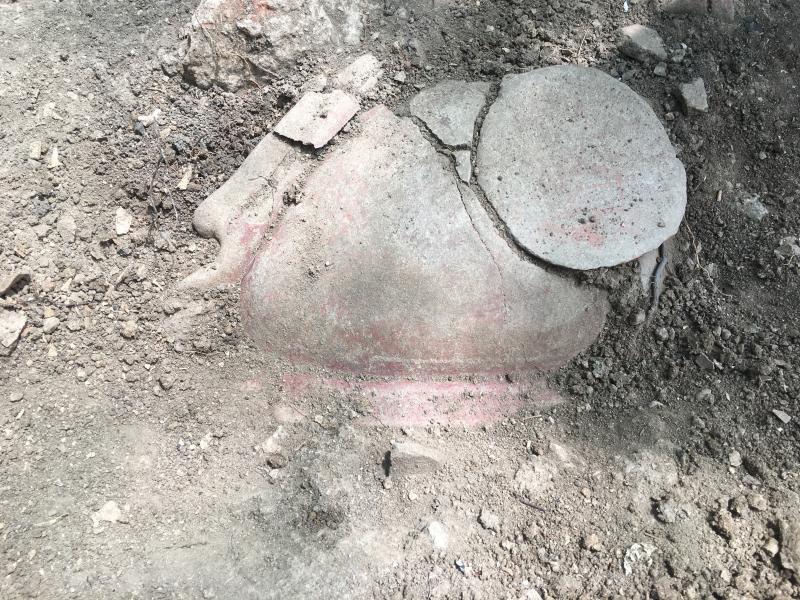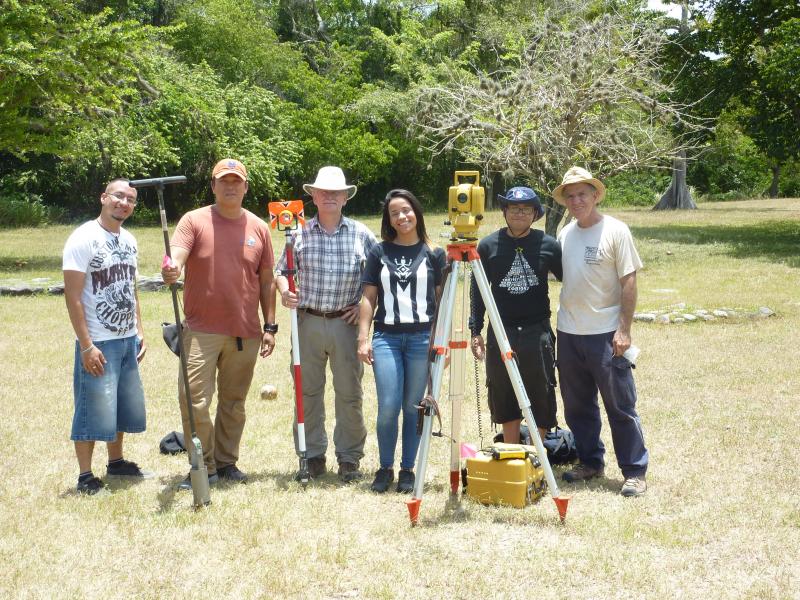Anthropological Research Council
Nonprofit 501(c)(3) All-Volunteer Staff
3379 Westphal Drive
Johns Island, SC 29455
ph: 703-966-3219
fax: 843-501-7752 (call ahead to preset fax)
contact
- Home

- Hold History in Your Hand
- About the ARC
- ARC Projects and Programs
- Cultural Continuity in the Turks and Caicos Islands
- Gullah - Geechee Stories and Songs - Cultural Preservation through Oral History
- IN PROGRESS .............. Geo-Archaeology in the Caribbean
- COMPLETED Zooarchaeology Cotton Cay
- COMPLETED -- Maya Piedras Negras Research
- Global Research Fund
- Research Proposal Submissions
- Contact Us
- ARC Research Information Exchange
Geo-Archaeology
in the
Caribbean
Researcher: Cory Look, Ph.D.
This research explores the successes and failures of
Pre-Columbian peoples in the Caribbean, not by the collapse or continuity of societies, but how societies dealt with the unintended outcomes of long term human impacts on landscapes and resources.
FUNDED
--
RESEARCH IN PROGRESS
Cory Look, Red Shirt, and Field Crew

Pre-Columbian Ceramic Find---Indian Creek
CONTRIBUTIONS
We welcome your contributions to support this important research
You may provide a contribution
via
PayPal below
or
CHECK
to
Anthropological Research Council
3379 Westphal Drive
Johns Island, SC 29455
Supporter - GAC - $50
Thank you. Your contribution will support this important research.
Please provide us with your name and email/mailing address, so that we can provide you a receipt recording your tax deductible contribution for your tax filings.
- $
- In stock
Associate - GAC $100
Thank you. Your contribution will support this important research.
Please provide us with your name and email/mailing address, so that we can provide you a receipt recording your tax deductible contribution for your tax filings.- $
- In stock
Principal - GAC $500
Thank you. Your contribution will support this important research.
Please provide us with your name and email/mailing address, so that we can provide you a receipt recording your tax deductible contribution for your tax filings.- $
- In stock
Benefactor - GAC $1,000
Thank you. Your contribution will support this important research.
Please provide us with your name and email/mailing address, so that we can provide you a receipt recording your tax deductible contribution for your tax filings.- $
- In stock
Sponsor, Full Funding
GAC $1,490Thank you. Your contribution will support this important research.
Please provide us with your name and email/mailing address, so that we can provide you a receipt recording your tax deductible contribution for your tax filings.- $
- In stock
There are a number of unique case study sites in the Caribbean that have been inhabited in the same place for over a millennium, each with their own social and ecological tempos and trajectories that had to be planned, managed, and maintained.
The site of Indian Creek in Antigua West Indies, is one such example, with over 1,500 years of continuous occupation. Interpretation of material culture has suggested that at least four separate phases of ceramic styles and two subsistence patterns were produced by the inhabitants of the site; however, a growing body of evidence has suggested that the spatial configuration and places within the site were organized around a ceremonial plaza that was maintained throughout much of the site’s history.
While archaeologists in the Caribbean have relied heavily on material culture as a descriptive factor in chronicling culture change, more research is needed to understand the role of space and place as an additional factor in the construction social identities. Maintaining a recognizable form requires planning, coordination, and the continued sharing of knowledge throughout places of interaction.
This project requests funding for the analysis of material remains associated with the construction and formation of the central plaza at the Pre-Columbian site of Indian Creek dating to around 500-800 AD.
Codakia orbicularis will be dated using radiocarbon analysis and tested for oxygen isotopes in order to begin constructing a climatic context for these changes.
Establishing a preliminary record of climatic conditions is necessary to understand the emergence of new risks and hazards people were facing. While the effects of the Medieval Warming Period have been well documented in North Atlantic archaeology, there is a substantial gap in the literature that needs to address how peoples of the Caribbean were affected.
A growing body of literature continues to support that changes in the northern climates are reflected in the tropical Atlantic regions of the Caribbean; although Pre-Columbian case studies with the temporal and spatial resolution to study these affects are sorely in need.
This research hopes to begin addressing this gap in literature by focusing on establishing preliminary climatic proxies that can be used to further our understanding of the complex dynamics of human-environment interactions at a millennial scale.
Project Goals:
1) Study the social-ecological systems that helped transform societies at a millennial scale. Begin studying the human impact on sustainable and unsustainable resources such as faunal, botanical, and soils throughout the context of climatic change and shifting subsistence strategies.
2. Collect and analyze comparable data sets (artifacts, zooarchaeology, sclerochronology, geoarchaeology) from similar sites. Findings from this research will be compared to sites such as Tibes in Puerto Rico, a regional excavation situated on a site with long-term occupation and dedicated plaza region.
Budget details:
Stable Isotopic Analysis Oxygen-18 and Carbon-13 (carbonate)-------------12 samples at $25.00/each: $300.00
Radiocarbon dates BETA Analytic: Two @ $595.00/each: $1190.00
Your support is greatly appreciated, and will be acknowledged in the researcher's report on the investigative effort.
Copyright 2016 Anthropological Research Council - ARC. All rights reserved.
3379 Westphal Drive
Johns Island, SC 29455
ph: 703-966-3219
fax: 843-501-7752 (call ahead to preset fax)
contact

